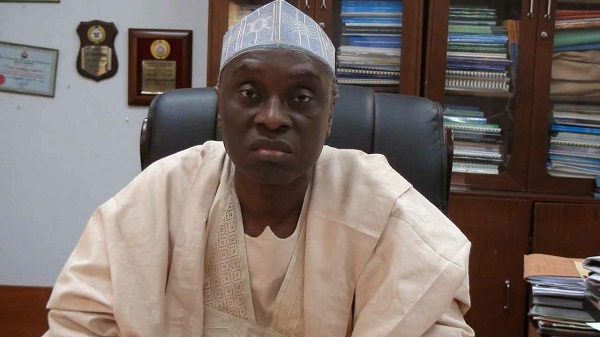
The director-general, Energy Commission of Nigeria, Prof. Eli Bala, has stressed that science, technology and innovation (STI) holds the key to getting the Federal Government’s economic diversification drive going.
Speaking exclusively to our correspondent on the sidelines of the just concluded STI Exposition in Abuja, he reiterated that innovations via various aspects of STI have the ability to fast-track Nigeria’s industrialisation, build her economy and solve its problems.
Highlighting some of the new innovations of the commission, he said the commission has come up with various innovations that can have lasting impact in the energy sector.
According to him, the grid-connected solar PV which Nigeria does not have, was developed in collaboration with the United Nations Development Programme (UNDP) to connect Nigerians to power wherever they are.
“This year, too, our Lagos centre made an instrument to be attached to homes or industries and [it can] tell you how many hours of electricity from the grid you’ve had. We started this project even before the Nigerian Electricity Regulatory Commission started its service-based tariff. This means you are billed not only on the amount you’ve consumed but on the availability. So, this instrument will tell you how many hours of electricity and the quality you’ve had from the grid,” he said.
“From the hydropower centre, we’ve developed a small hydropower unit known as the ‘pelton wheel’ and they are demonstrating the capacity to construct it in Nigeria, particularly in our research centres. They have shown not only ‘pelton wheel’ but also electricity from hydrokinetics, instead of electricity from the dam (which has a velocity which converts it into mechanical and electrical energy).
“Nsukka Centre is demonstrating a home run by renewables. We have the solar water heater, electricity from Solar PV, then a windmill mounted to generate electricity for the house,” he added.
Similarly, the director, linkages and consultancy at the commission, Engr. Okon Ekpenyong, said another UNDP project implemented in collaboration with the ECN, the Global Environment Facility (GEF) Sustainable Fuelwood Management (SFM) project, was able to provide clean cooking solutions for Nigerians, especially rural women who depend largely on fuelwood for their heating needs.
He added that the project which depends on science, technology and innovation was able to come up with innovations to make cooking with fuelwood more sustainable through the energy-efficient cookstoves, adding that the project which came to an end in April 2022 was adjudged a resounding success because it proffered solutions to clean cooking and environmental conservation amongst other gains.
In his remarks, the director, National Centre for Hydropower Research and Development (NACHRED), Prof. Adebayo Salami, said the centre under the commission, vested with the mandate to conduct research and training in hydropower development and technology, has been producing small hydropower equipment.
Salami said innovations from STI has the potential to transform Nigeria’s energy sector by connecting Nigerians, especially those not connected to the national grid to power.


